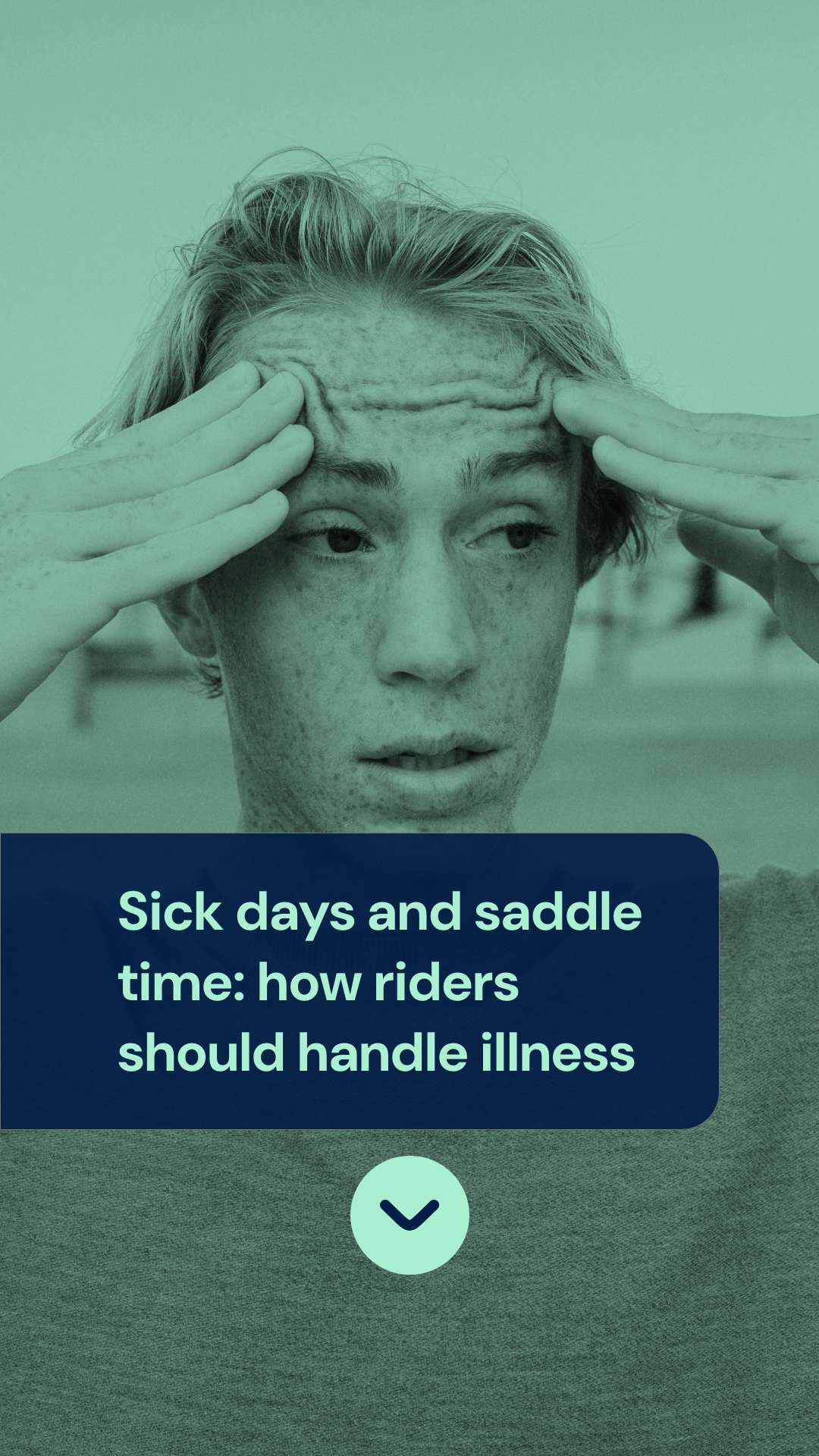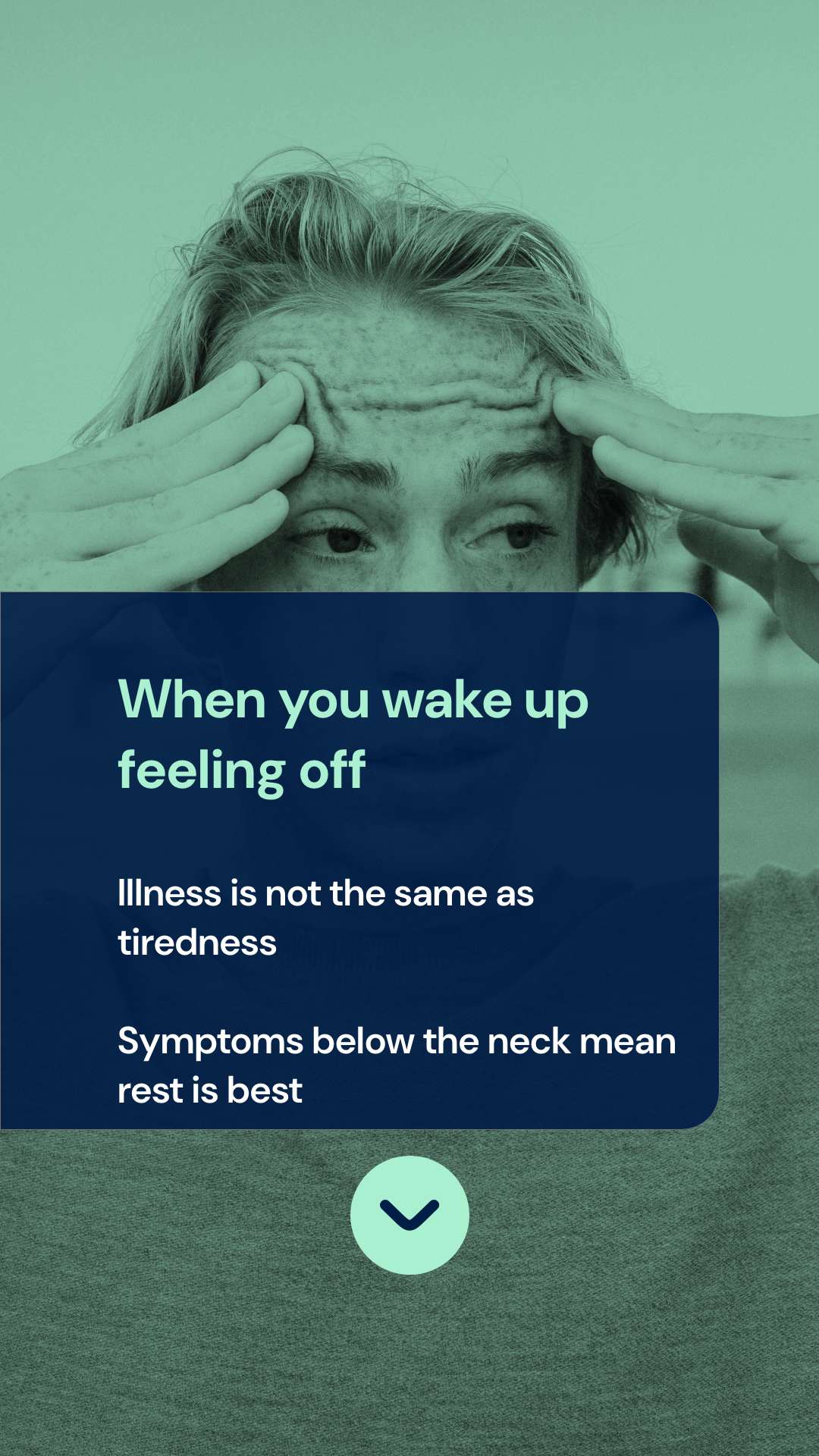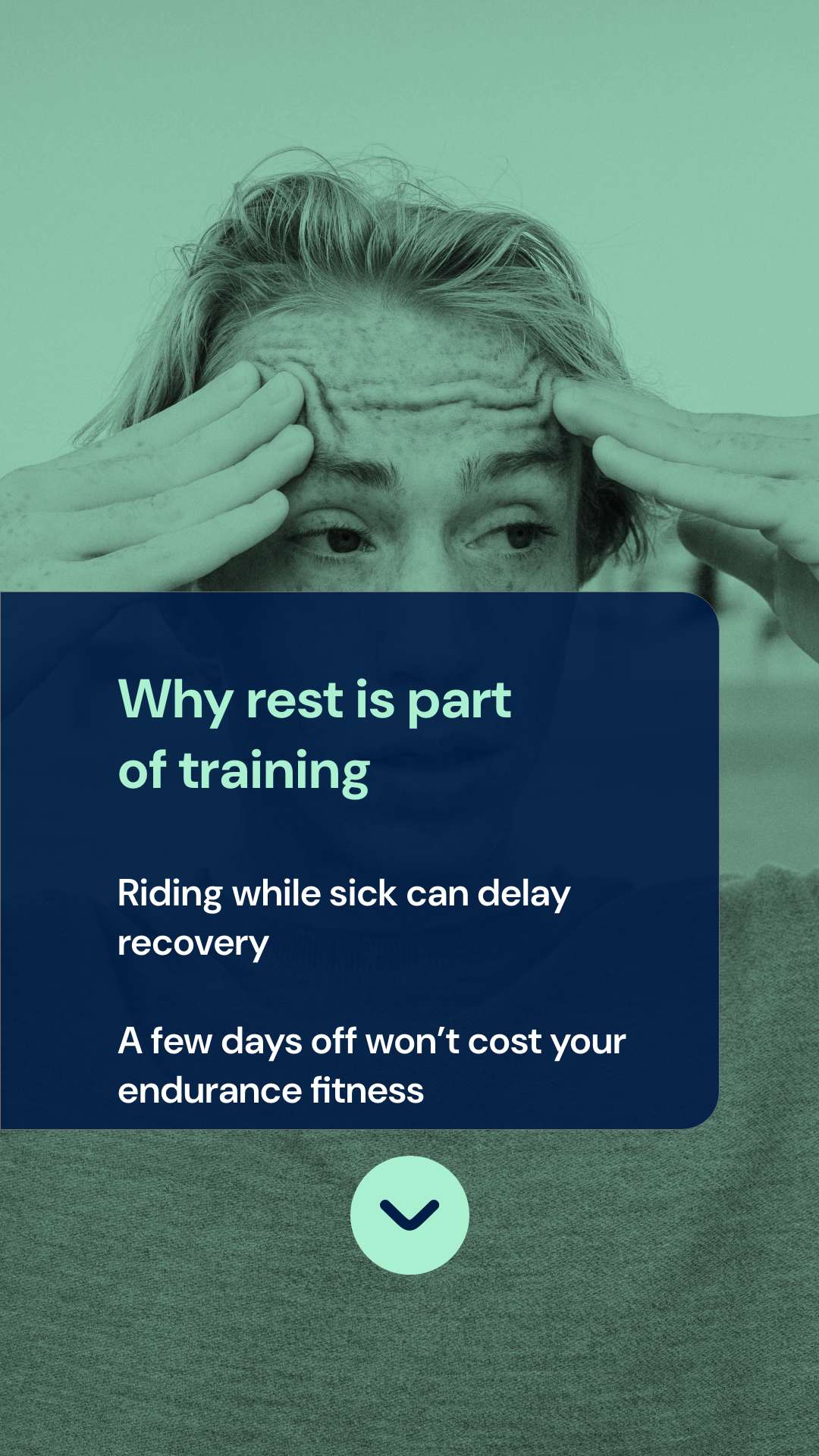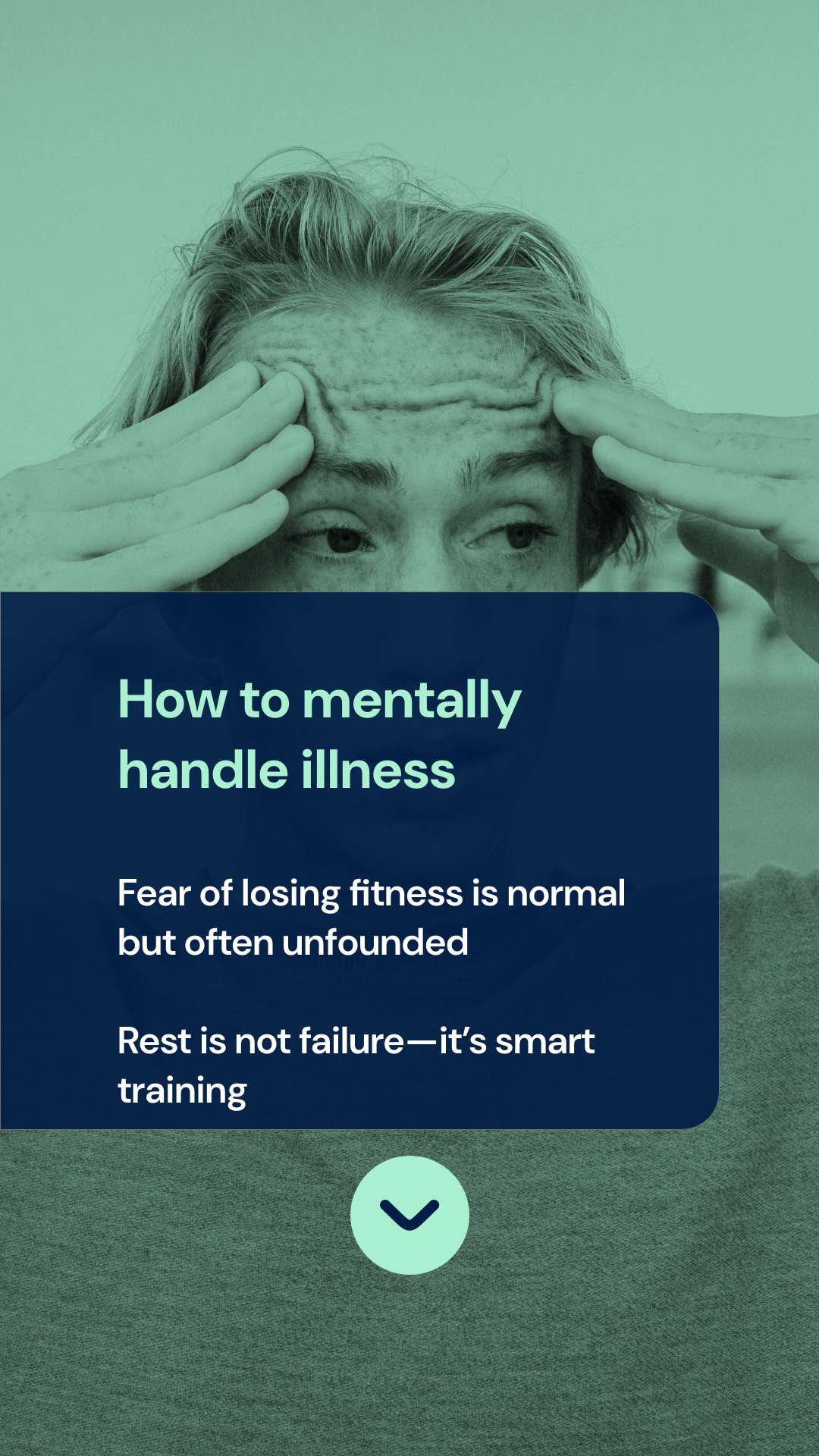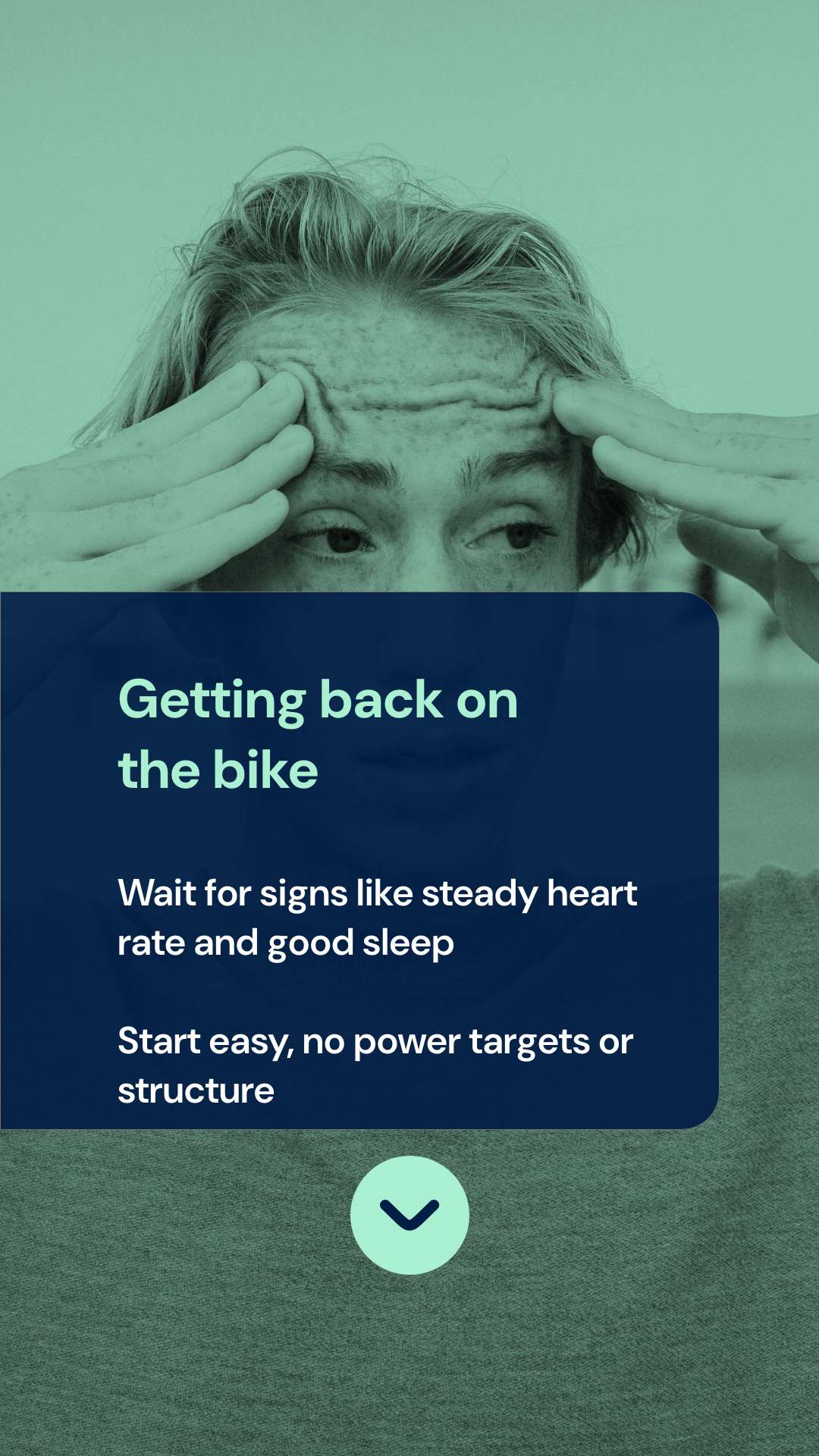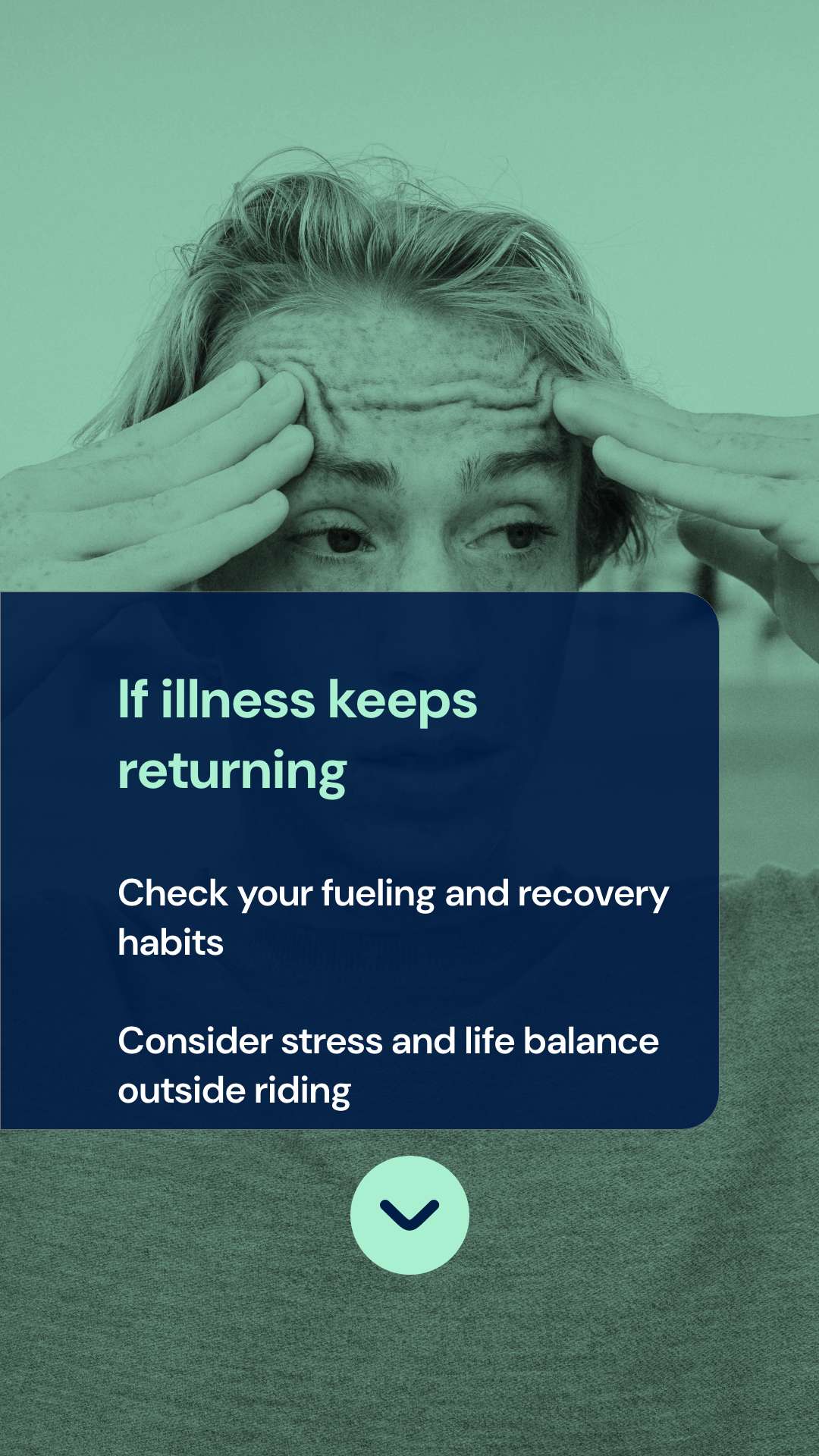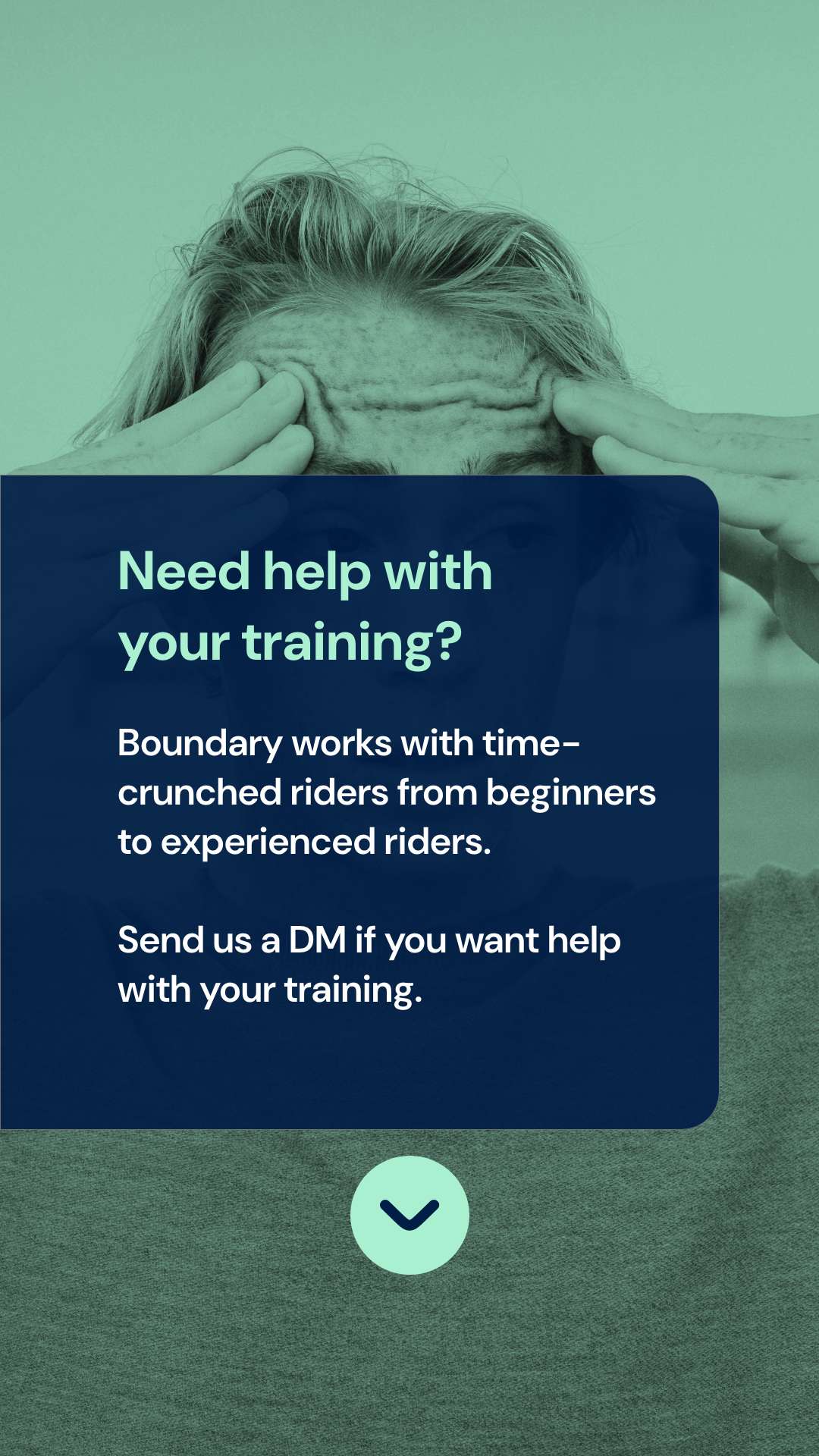The kettle goes on and your mind starts flipping through the options. The plan said tempo. Your legs feel dull. Heart rate seems a bit off. You wonder if a gentle spin might clear the fog. That is usually the moment to stop and ask a better question. Not “should I ride?” but “what is my body asking for?”
Riders tend to be good at pushing on. We are used to being tired. We expect discomfort. Many of us even take a kind of pride in carrying on regardless. But illness is not the same as fatigue. It is not a signal to push through. It is your body asking for space to heal. When you are fighting something off, even mild symptoms can tip the balance. Riding anyway might feel fine in the moment, but it can draw out your recovery, deepen the fatigue or trigger a setback that takes much longer to recover from. What feels like a brave decision in the morning can turn into a frustrating two-week stop that could have been avoided with one quiet rest day.
There is a rough rule of thumb known as the neck rule. If your symptoms are above the neck, like a runny nose or a mild sore throat, and you otherwise feel okay, you might get away with a gentle ride. But if the symptoms are below the neck, like a chesty cough, muscle aches, or any fever, you are better off staying off the bike. Even in mild cases, the real test is how you feel after. If a short spin leaves you feeling worse, it was too much. There is no fitness gained by overriding your immune system.
What is usually behind the urge to ride is not stubbornness but fear. Fear that the progress you have made will disappear. That time off will undo all the work. But the science is reassuring. You can miss a week of training without any meaningful drop in aerobic fitness. The adaptations that matter most for distance riding, the deep aerobic base, metabolic efficiency, mental resilience, those do not vanish in a few days. (For more on why rest builds fitness rather than destroys it.) If anything, short breaks can actually help. They give your system space to reset, especially if you have been stacking fatigue for weeks. I have seen athletes come back stronger after illness, not because they trained through it, but because they rested properly and returned with a fresh perspective.
When it comes time to get back on the bike, keep it simple. Your body will usually give you a clear signal. Your resting heart rate comes back to baseline, your sleep improves, your mood lifts, and you start to feel a genuine urge to move again. That is when you can test the waters. Begin with something light and short. No structure, no targets, just easy pedalling at Zone 1 intensity. Treat it as a conversation with your body. If it feels good, you can continue. If it does not, wait another day. One quiet day now is always better than ten forced days later.
Here is a way to ease back in. For the first few rides, keep the duration short and the intensity very low. Think of it as active recovery, not training. Focus on how your breathing feels, how your legs respond, and how you feel afterwards. If everything checks out, you can gradually build duration. After three or four solid rides with no setbacks, you can start to fold in light structure. But avoid the trap of trying to make up for lost time. There is nothing to catch up on. Fitness is not built in a single session. It is built in rhythm.
If illness becomes a regular disruption, it is worth stepping back to ask why. Sometimes it is just bad luck. But often there are clues. Are you fuelling properly during your long rides? Is your recovery matching your training load? (See post-ride recovery protocols for sleep, nutrition, and monitoring guidelines.) Is stress outside training piling up without you noticing? These are all things that chip away at resilience. You do not need to overhaul everything. Just notice the patterns. Take the feedback and make a small adjustment. Your immune system is part of your training too.
There is no glory in pushing through illness. The strongest riders are not the ones who train no matter what. They are the ones who listen, adapt and respond. Rest is not time lost. It is part of the work. When you treat it with the same respect you give to intervals and endurance blocks, you stop fearing it. You start to trust that you are not losing fitness by resting, you are protecting it.
So next time you feel something coming on, take a step back. Give your body a chance to do what it needs. The road will still be there. And when you come back to it, you will ride with a little more calm, a little more patience, and a deeper trust in your own judgement.
